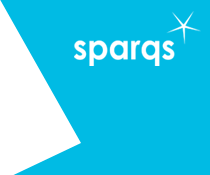Shona Struthers is chief executive of Colleges Scotland, the campaigning and policy membership organisation for the college sector. She was appointed in August 2014 after working in other roles at the organisation. Prior to that she ran an education consultancy which was involved in a number of projects within the college sector. Shona was Scottish Further Education Unit board member (the forerunner to the College Development Network) for two years, and a Forth Valley College board member for six years and chair of its finance committee.
1. Although are you new to your current role, you’ve been involved in the college sector in a number of different ways over the years. How do you think student engagement has changed in terms of its importance to the sector?
Colleges Scotland is a membership organisation, where the members are colleges. As chief executive I deal primarily with college chairs and principals – so my direct interaction with students is infrequent.
But what I do hear is that students have a much louder and more effective voice now that the Post-16 Education (Scotland) Act 2013 has increased the number of student members as full board members.
Students in colleges have made it clear they are important. And colleges recognise that students are at the heart of how colleges work. It is only right that they have a voice at the governance table where key decisions are made.
Students are now set up with proper processes and procedures for engagement in governance and quality in colleges. For example, NUS Scotland now has a very positive and proactive campaigning strategy. And the result is that when the NUS mounts a campaign – Government listens. There is nothing like a young person telling you how it is.
Colleges consult much more with students on how courses are delivered and feedback from students is used to shape the direction of learning.
2. What can Colleges Scotland bring to the wider sector’s understanding of and practice in student engagement?
Colleges Scotland can represent our members through engagement with sparqs as it develops its strategies to support students, institutions and the wider sector. We can act as a conduit for key messages by working closely with sparqs. Because we inform on policy and have access to principals and chairs - and sparqs has access to students - we can help each other improve student engagement issues.
3. And how does Colleges Scotland engage students in its own work?
We have a governance structure that represents our members – and the members are the regions, represented by chairs and principals on our board. Obviously representing the views of students nationally is a role for others such as NUS so we wouldn’t want to tread on toes! The sector is strongly defined however by the idea of students having a voice, and at college board level student members are full and equal board members like anyone else. We’ve worked closely with NUS Scotland on, for instance, the governance steering group, where their input has been vital into the Code of Good Governance for Scotland’s Colleges.
4. SFC has provided funding to both ourselves and NUS Scotland to provide an extra couple of years’ support to the development of college students’ associations. What role do you expect students’ associations to play in the newly regionalised college sector in the coming years, not just institutionally but sectorally?
Colleges Scotland welcomes the extension of funding to help support students’ associations as they adjust to multi-campus operations and increases in the size of colleges. There will be a continuing need for induction and training for student representatives to ensure that their contribution remains valued and effective. We expect that student representatives will also play an important role in future reviews of quality and governance in the sector.
5. And what can staff and boards do to support this important role for students’ associations?
All sector agencies, not least sparqs, have a vital role in helping students have a full voice in quality and policymaking, as set out by the Code of Good Governance. Our colleagues in the College Development Network are key in delivering support to all board members, and of course this involves the student members.
Also, boards as a whole can provide support to students’ associations by developing good links. When I was a college board member we received regular reports from the students’ association on their work, and this involved officers other than just the student member. We were able to offer advice on many areas, such as the budget.
However, there is often a challenge for student board members who may not have past experience of governance and formal meetings, in the way that other board members usually do in their day jobs. So when student members are only on the board for a year or two the support provided is crucial. Besides the support provided within colleges and boards, and by sparqs and NUS Scotland, there’s perhaps scope for mentoring – especially if provided by people outside the region, to give a fresh perspective. I’d love to see mentoring becoming a bigger part of the support to student members.
Thanks to Shona for being an interviewee. To suggest a future subject for interview, please contact us.
This interview is part of a series of occasional interviews on our website with student engagement practitioners – both staff and students, and from within Scotland’s university and college sector and beyond. The interviews aim to capture the different perspectives that people have on student engagement in the quality of learning.


